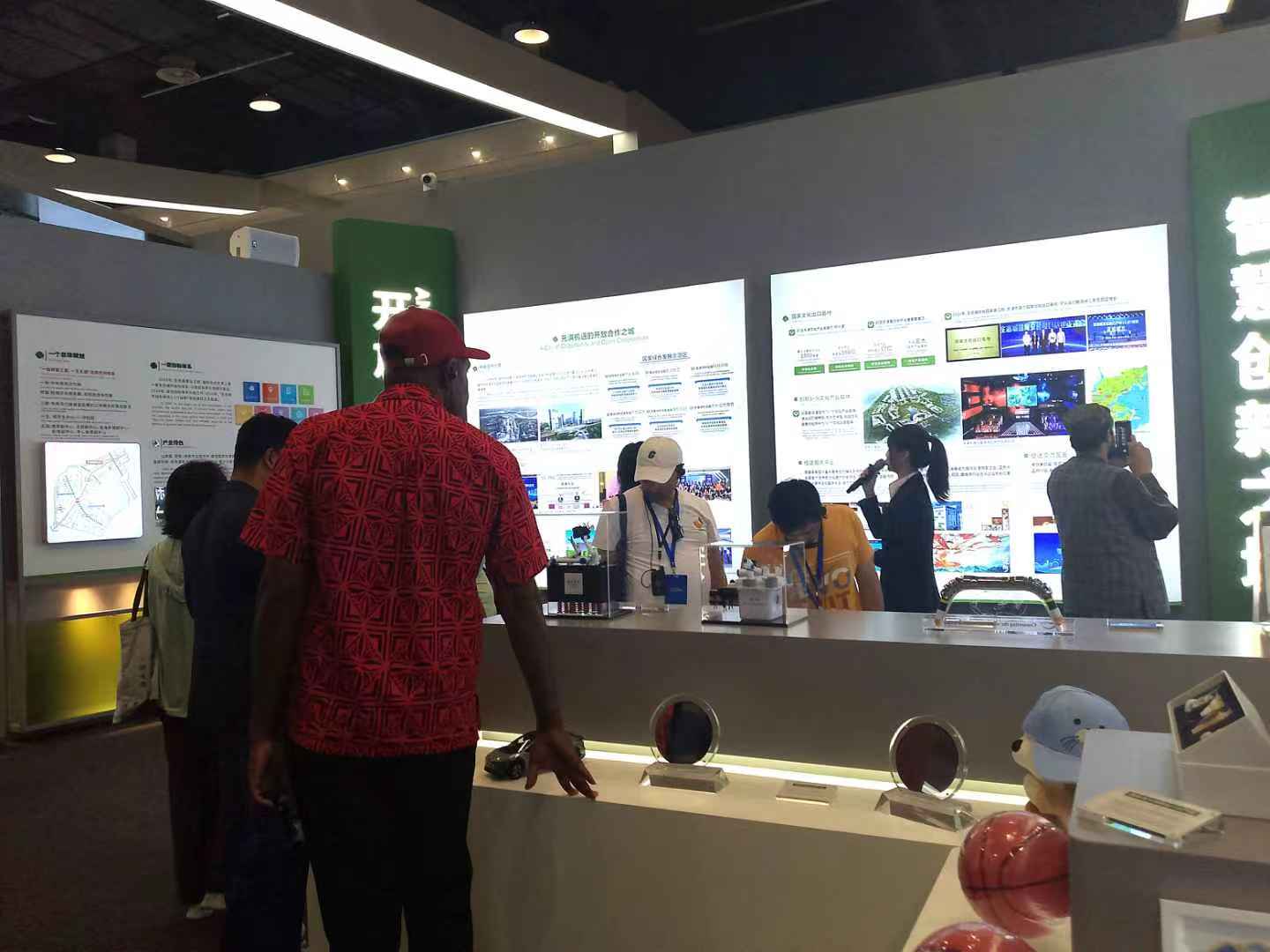THE China-Singapore Tianjin Eco-City is a major cooperation project between the governments of China and Singapore and enjoys the reputation of being the first of such cooperation between any two countries.
The cooperation is aimed at addressing global climate change, strengthening environmental protection, conserving resources and energy, and providing a model for sustainable urban development.
The Eco-City deeply implements the “ecology + wisdom” dual drive development strategy.
By exploring the development path of “promoting industry through urban development, revitalizing the city with industry, and achieving city-industry integration”, Tianjin City and Singapore City collectively strive to become cities of green ecology, cities of smart innovation, cities of openness and cooperation, and cities of vitality and happiness.
In 2008, at the commencement of the construction of the Eco-City cooperation, the world’s first set of eco-city index system was compiled and completed to lead the cooperation partners in urban construction.
In 2018, the upgrading of the index system was initiated and since that year, the Eco-City has pioneered the development of autonomous driving and intelligent transportation ecosystems through continuous innovation in 5G-V2X (Vehicle to Everything) and Intelligent Connected Vehicle (ICV) technologies.
In 2020, the “Eco-City Index System 2.0” was officially approved by the Ministry of Housing and Urban Rural Development.
Under the guidance of developing high-end intelligent and green industry, the National Animation Park, Information Park, Science and Technology Park, Biomedical Industrial Park and other industrial carriers have been built so as to form three leading industries of cultural and health tourism, science and technological services, and green building and development with a total of 43,000 registered market entities.
In October 2021, the Tianjin Municipal Government officially approved the establishment of the Northern Big Data Trading Center (NBDTC). As a market-driven institution that specializes in data transaction services, the NBDTC serves as a critical conduit, connecting data suppliers with end-users across industries.
By cultivating innovative application scenarios for big data utilization, it stimulates transactional activities, while fostering a nationally-recognized cross-sector and interregional ecosystem – the “Data Convergence Initiative”.
The integrated framework positions Tianjin as a distinctive exemplar in advancing China’s digital economy.
In 2022, Tianjin Central Fishing Port was approved as the national backbone base for cold-chain logistics.
Its groundbreaking achievements include China’s first operational unmanned delivery system for urban logistics, AI-powered autonomous patrol vehicles for municipal management, the “Tianjin-Hao” solar-powered electric vehicles for municipal management, the “Tianjin-Hao” solar-powered electric vehicle, the nationwide debut of 5G-V2X vehicle-road coordination, and the commercial operation of smart connected buses on public roads.
In 2023, Tianjin’s first frozen goods bonded display and trading market was launched.
In 2024, Tianjin Cold Chain Logistics Industry (Talent) and Industry-Education Integrated and the State Council approved the Implementation Plan for Building a National Green Development Demonstration Zone in China-Singapore Tianjin Eco-City (2024-2035).
The plan entrusted the Eco-City with a new mission to build an “upgraded version” of the demonstration zone, marking a new chapter in integrating green, low-carbon economic practices with urban development.
Tianjin Software Park officially opened and centering around the advanced computing industry, the park focusses on software development, software services and data services, aiming to build a computer industrial chain covering computing power, algorithms, resources and application scenarios.
The park is positioned to become a hub for technological innovation, a thriving ecosystem for software enterprises, and growth engine for software industry, ultimately establishing itself as a new powerhouse for Tianjin’s software sector.
FAW Toyota Motor Co., Ltd.’s first new energy vehicle factory in China achieved an output value exceeding 24.5 billion yuan in 2024. By the end of 2024, a total of four new models were launched into production.
Huawei Global Smart City and Submarine Fiber Optic Service Headquarters generated about 2.5 billion yuan in revenue in 2024. The submarine fiber optic repeater is Huawei’s only major national strategic project.
Under the principle of prioritizing ecological protection and utilization, the Eco-City completely preserves wetlands and water systems, reserves bird habitats and builds a composite ecosystem of “lake, river, wetland and green space” to form an ecological pattern that organically integrates natural and artificial ecosystems.
40 urban parks have been built with a total green space exceeding 11m2, and over 50 per cent greening coverage in built-up areas.
A network of 32 km of interconnected greenways has been established, ensuring that 100 per cent of residential communities have access to park green spaces within a 5-minute walk.
The Tianjin Eco-City has a living coastline of 36km, the closest one to Beijing. In 2023, it was approved by the Ministry of Ecology and Environment as one of the second batch of outstanding cases of Beautiful Bay nationwide, becoming the first region in Tianjin to receive this honor.
By DELI-SHARON OSO
In Beijing, China




